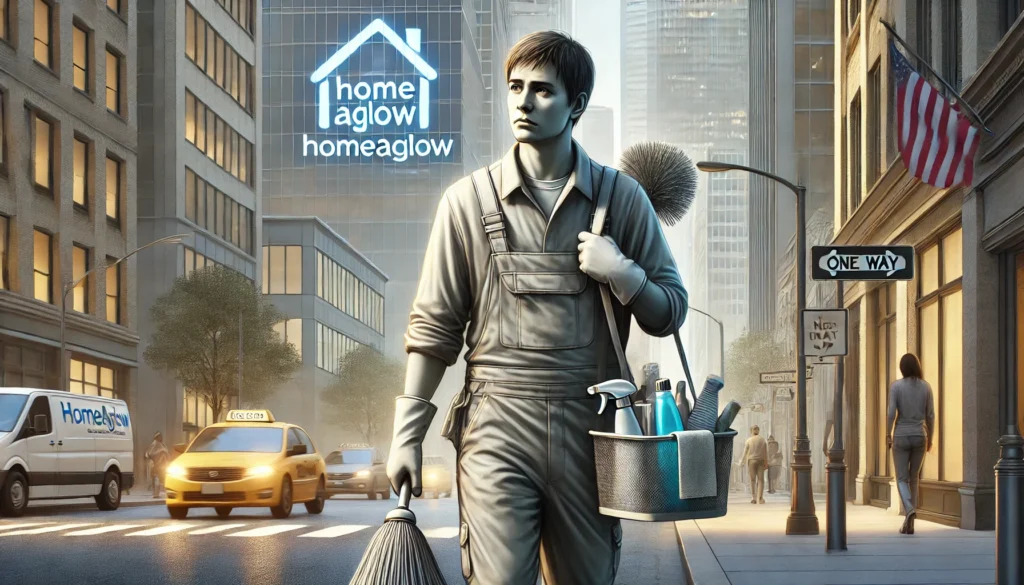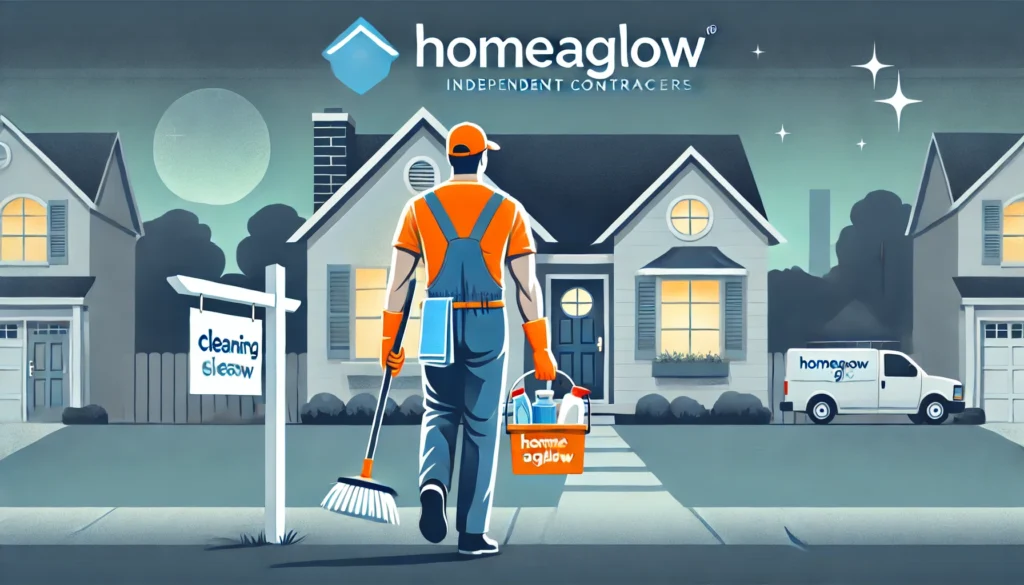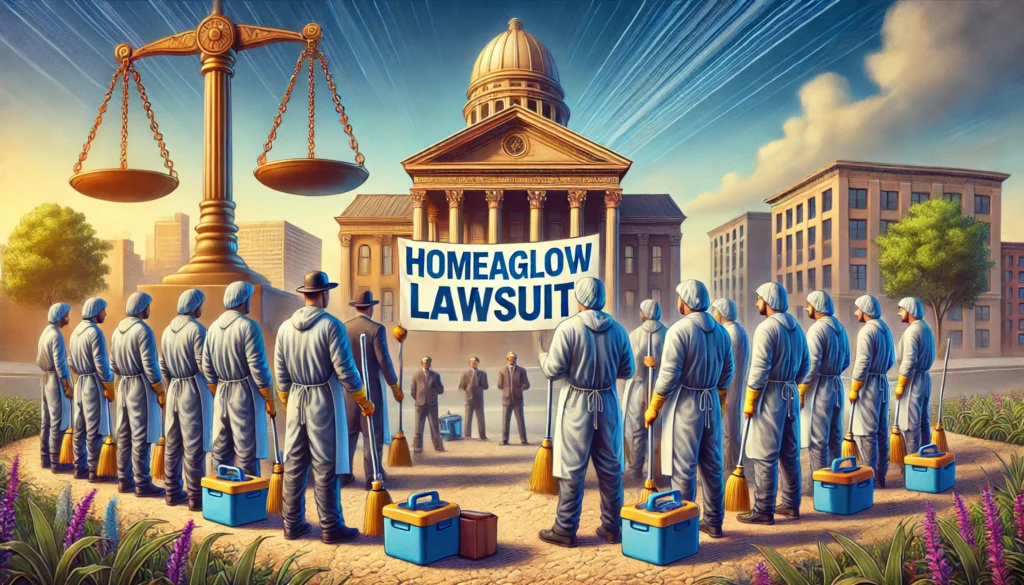Homeaglow Lawsuit is a cleaning services platform that connects customers with independent cleaners. This business model, like many in the gig economy, relies on freelancers rather than traditional employees. However, Homeaglow is currently facing several lawsuits related to its classification of workers and its labor practices. These legal challenges center around whether Homeaglow’s cleaners should be treated as employees, entitled to benefits such as minimum wage and overtime, or as independent contractors with fewer protections.
The outcome of these lawsuits could have major implications for the company and the broader gig economy. In this article, we’ll explore the key issues raised in the lawsuits, the legal proceedings, and the potential impact on workers and companies in the gig economy.
Background of Homeaglow
What is Homeaglow?
Homeaglow, also known as Dazzling Cleaning, is an online platform designed to match customers with cleaners. The platform allows cleaners to set their own schedules, select jobs, and work as independent contractors. Homeaglow facilitates the connection between the client and the cleaner, providing an online interface where bookings, payments, and reviews are managed.
However, like other companies in the gig economy, Homeaglow classifies its workers as independent contractors rather than employees. This means that cleaners don’t receive the typical benefits and protections that employees would be entitled to under labor laws. This distinction between independent contractor and employee status is central to the lawsuits filed against the company.
Key Issues Raised
The lawsuits filed against Homeaglow allege several key issues. The main complaint is that the company has misclassified its workers as independent contractors, a status that exempts the company from providing certain benefits, such as minimum wage, overtime pay, and reimbursement for expenses. The plaintiffs argue that Homeaglow exerts too much control over the cleaners’ work, making them more akin to employees rather than independent contractors. They also claim that Homeaglow charges unfair fees and fails to compensate workers properly for their time and effort.
Homeaglow Lawsuit: A Fight for Worker Rights in the Gig Economy
The Homeaglow lawsuit highlights critical concerns about how gig economy companies treat their workers. At the center of the legal battle is the question of whether Homeaglow cleaners should be classified as independent contractors or employees. As independent contractors, cleaners are denied benefits like minimum wage, overtime pay, health insurance, and reimbursement for work-related expenses. However, the plaintiffs argue that Homeaglow exercises significant control over their work, making their contractor status unfair.
The lawsuit also claims that Homeaglow charges cleaners unfair fees for services such as advertising and client acquisition. These fees, combined with unpaid cancellations and lack of reimbursements, make it difficult for cleaners to earn a fair wage. Cleaners are also expected to cover the costs of their cleaning supplies and transportation, further cutting into their income.
The outcome of the Homeaglow lawsuit could have a major impact on the gig economy. If the cleaners are reclassified as employees, Homeaglow would need to provide benefits and protections, significantly increasing its costs. This decision could also set a precedent for other gig platforms, potentially reshaping the entire industry.
As the legal battle continues, it underscores the ongoing struggle for worker rights and fair treatment in the rapidly growing gig economy. For workers, it’s a fight for recognition, stability, and the protections they deserve. For companies, it’s a challenge to balance flexibility and innovation with responsibility and compliance. The result of this case will be closely watched by workers, businesses, and policymakers alike.
Key Allegations in the Lawsuits
Worker Misclassification
One of the central allegations in the lawsuits is that Homeaglow misclassifies its cleaners as independent contractors. Independent contractors typically have more control over their work, including setting their own hours and determining how to complete their tasks. However, the plaintiffs argue that Homeaglow exercises significant control over its cleaners, such as setting specific standards for cleaning tasks, determining the types of jobs available, and managing client interactions. This level of control, they claim, is typical of an employer-employee relationship, not that of a contractor.
The misclassification of workers is a significant issue because independent contractors are not entitled to the same rights and benefits as employees. This includes protections under labor laws such as the right to earn at least minimum wage, overtime pay for extra hours worked, and reimbursement for necessary work-related expenses like cleaning supplies and transportation. The plaintiffs believe that the cleaners should be recognized as employees and thus be entitled to these protections.
Failure to Provide Employee Benefits
The lawsuits also allege that Homeaglow fails to provide the standard benefits typically offered to employees. Because cleaners are classified as independent contractors, they do not receive benefits such as minimum wage, overtime, health insurance, or paid time off. The plaintiffs argue that since Homeaglow exerts significant control over the cleaners’ work, these workers should be entitled to employee benefits.
Another issue raised is the lack of reimbursement for work-related expenses. Cleaners claim they are required to pay for their own cleaning supplies, transportation, and other job-related costs without reimbursement from Homeaglow. This, they argue, is another violation of their rights and further evidence that they should be classified as employees, not contractors.
Control Over Cleaners
The plaintiffs also argue that Homeaglow has too much control over how cleaners perform their work, which undermines their status as independent contractors. For example, the company provides detailed instructions on cleaning standards and client expectations. Homeaglow also sets the price for services and manages the payment process. This level of control over the cleaners’ work is seen as evidence that they are functioning more like employees than independent contractors.
Unfair Fees and Deductions
major concern raised in the lawsuits involves the fees that Homeaglow charges to its cleaners. The plaintiffs allege that the company imposes illegal fees for services such as advertising and client acquisition. These fees reduce the earnings of cleaners and, in some cases, result in cleaners earning less than the minimum wage after fees are deducted. Furthermore, cleaners claim that they are not compensated when clients cancel appointments or fail to show up, which further impacts their income.
Legal and Procedural Developments
Initial Class Action Lawsuit
In response to these issues, several class action lawsuits were filed against Homeaglow. The plaintiffs sought to challenge the company’s classification of workers and demand compensation for unpaid wages and benefits. However, the initial case was dismissed in August 2023 due to mandatory arbitration clauses in the contracts signed by the cleaners. These clauses required any disputes to be resolved through arbitration, rather than in court. This dismissal blocked the lawsuit from proceeding in a public court, but it did not end the legal challenges.
New Legal Actions
Despite the setback in 2023, legal actions have continued. The plaintiffs are now focusing on challenging the arbitration clauses, arguing that these provisions are unfair and should not prevent them from seeking justice in a court of law. If the court allows the lawsuits to proceed, the plaintiffs hope to have their claims heard and to seek compensation for unpaid wages, lost benefits, and other damages.
Potential Legal Implications
Impact on Homeaglow’s Business Model
If the lawsuits are successful, Homeaglow could be forced to change its business model. The company may have to reclassify its workers as employees, which would mean offering benefits such as minimum wage, overtime pay, and reimbursement for work-related expenses. This could significantly increase the company’s operating costs and may require changes to its platform and payment structure.
Broader Impact on the Gig Economy
The outcome of the Homeaglow lawsuits could have wider implications for the gig economy as a whole. Companies like Uber, Lyft, TaskRabbit, and others rely on independent contractors to perform services. If courts rule in favor of the plaintiffs, it could set a precedent that leads to more gig economy workers being classified as employees rather than contractors. This would likely result in increased labor protections and benefits for workers, but it could also force companies to adapt their business models to accommodate these changes.
Arguments by Homeaglow
Homeaglow defends its business model by emphasizing the flexibility it offers to its workers. The company argues that by classifying its cleaners as independent contractors, it allows them to work on their own terms, choose jobs they want, and set their own schedules. Homeaglow also defends the fees it charges, claiming they are standard practices for gig economy platforms that help cover advertising, client acquisition, and other operational costs.
The company maintains that its model is beneficial to both clients and workers, allowing for greater flexibility and efficiency than a traditional employment structure. However, critics argue that this flexibility comes at the expense of workers’ rights and protections.
Current Status of the Lawsuits
The lawsuits against Homeaglow are still ongoing, with new legal actions being taken to challenge the arbitration clauses in the contracts. The outcome of these legal proceedings is still uncertain, but they will likely have significant implications for Homeaglow and the gig economy as a whole. If the lawsuits succeed, Homeaglow may be required to reclassify its workers and offer better compensation and benefits. For now, the case continues to move through the legal system, and the future of the platform and its workers remains in flux.
Perspectives from Cleaners
Many cleaners who have come forward to share their experiences describe the challenges they face while working for Homeaglow. Cleaners have reported struggling to earn a fair wage, especially after fees are deducted from their earnings. Some have also raised concerns about the lack of support from Homeaglow when things go wrong, such as when clients cancel or dispute charges. These challenges have led many to believe that they are being treated unfairly and that their status as independent contractors is not justified by the level of control Homeaglow exerts over their work.
Public and Legal Reactions
The lawsuits have sparked significant public debate about the treatment of gig economy workers. Labor advocates and worker’s rights groups have rallied behind the cleaners, arguing that gig economy companies like Homeaglow exploit workers by denying them the benefits and protections that employees are entitled to. Many believe that these companies should be held accountable and required to provide fair wages, benefits, and protections for all workers, regardless of their classification.
Legal experts have also weighed in on the case, with many predicting that it could have broad implications for the gig economy and worker rights. As more and more companies adopt the gig economy model, the outcome of this case could set a precedent for how gig economy workers are treated and what rights they have.
Last Word
The ongoing Homeaglow lawsuit is part of a larger conversation about the rights of gig economy workers and how companies classify and compensate their employees. While Homeaglow defends its business model, the plaintiffs argue that the company’s practices exploit workers and deny them essential protections. The outcome of this Homeaglow lawsuit could have significant consequences not only for the company but for the entire gig economy. As these legal battles continue, it’s clear that questions about worker classification, compensation, and benefits will remain at the forefront of discussions about the future of work in the gig economy.
FAQs
What is the main issue in the Homeaglow lawsuit?
The lawsuit focuses on whether Homeaglow misclassifies cleaners as independent contractors instead of employees, denying them benefits like minimum wage and overtime.
Why are workers suing Homeaglow?
Cleaners allege unfair treatment, including illegal deductions, lack of reimbursements for expenses, and uncompensated cancellations.
What is the significance of the “ABC test” in this case?
The ABC test helps determine if workers are employees or contractors; plaintiffs argue they fail this test, supporting their employee classification claim.
What happened to the first class action lawsuit?
It was dismissed in 2023 due to mandatory arbitration clauses, but new legal actions aim to challenge these provisions.
How could this lawsuit impact other gig economy companies?
If successful, it could set a precedent requiring gig platforms to classify more workers as employees, impacting costs and business models.
Article Recommendations
Armaid Complaint Sony Beverly Slate Lawsuit: Analyzing the Role of Hedge Funds in Hollywood Disputes
Navigating Personal Injury Settlements: Strategies for Maximizing Compensation




